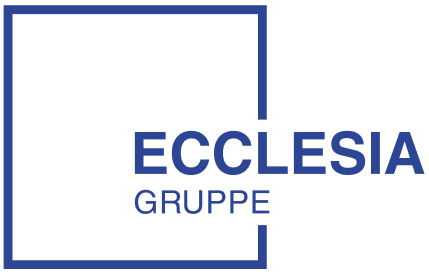
Artificial intelligence and human empathy: claims processing at deas
The numbers speak for themselves: in 2023, around 147,000 claims totalling 1.2 billion euros were reported to the Ecclesia Group, to which deas belongs. All the more impressive is the work that the “claims managers” do every day at Germany's largest B2B insurance broker. They are the ones who ensure on behalf of the customer that claims are settled quickly, in accordance with the contract and with the customer in mind.
“Our aim is clear: we put our customers on an equal footing with the insurers,” says Thomas Primnitz, Head of Claims. ”They don't have to worry about complex settlement issues and legal interpretations of clauses. We are the specialists who have the necessary insurance know-how.”
The range of claims processing is wide: for all insurance solutions that deas brokers, it also handles claims processing for its customers. This includes the major areas of property insurance, general liability and the group's thematic competence centers: Ecclesia Cyber, Ecclesia Mobility and Ecclesia Construction.
Claims reporting made easy – with ecconnect
If a customer wants to report a claim, there are various ways to do so. If the responsible claims handler is known, customers often inform him directly by e-mail. A disadvantage of this option is that the information about the claim is received as continuous text – and thus unstructured and often incomplete. With the digital claims reporting form on the website and the digital platform “ecconnect”, deas offers its customers alternatives that provide more structure and thus enable more efficient and faster claims processing right from the start. Via the ecconnect platform, for example, all relevant information about a claim, including photos and additional documents, can be quickly and conveniently transmitted to deas. And the tool can do even more: it enables customers to manage their insurance contracts and claims in one place. Not only claims notifications, but also questions about contracts and claims processing can be quickly and easily forwarded to the responsible customer advisor. The major advantages of the platform are its up-to-dateness and transparency. Both the customer and the claims specialist can use ecconnect to view the status of the claims processing at any time and, for example, check which amounts have already been paid out.
How AI can help in the future
“In times of advancing digitalization, we will rely even more on innovative technologies in claims processing in the future,” explains Primnitz. ‘On the one hand, we are developing ecconnect into a tool that guides customers even smarter and more intuitively through the process of reporting a claim. In addition, artificial intelligence will play an increasingly important role.’ As part of a project, the group is currently planning technologies that can understand and interpret documents, such as claims notifications by email. In the future, incoming reports could be processed even faster – and customers would receive a response more quickly. “And that's just the beginning,” says Primnitz. “As the Ecclesia Group, we have one of the largest claims databases in Europe. Now imagine an AI that can analyze and interpret all this data: that would have enormous added value for claims management.” For example, recurring patterns in the claims data could be used to identify risks at an early stage. In addition, more precise benchmark comparisons could be created for customers, which could then be used as a basis for developing necessary strategies and measures.
On-site customer service: the claims field service
Whether it's via the ecconnect platform, the website or by email: once the customer has reported the damage to deas, the claims handler responsible assesses the damage and decides which steps need to be taken next. They remain involved as the process continues, to ensure that the claim is always settled in a manner that is contractually compliant, customer-oriented and prompt. If there are differences in the assessment and evaluation of the insurance, the consultant represents the interests of the customer and works towards a settlement that is in line with the contract. Often, claims settlement involves the consultation of experts or authorized experts. If the damage is complex, the claims manager also involves the claims field service. The claims field representative then visits the customer and inspects the damage on site, coordinating and orchestrating the interaction with both the appraisers and experts and the insurer's claims adjusters, who also send their field representatives in such cases. Deas does everything in its power to represent the interests of its customers as best as possible throughout the entire claims process in order to achieve an optimal outcome in the settlement at the end.
